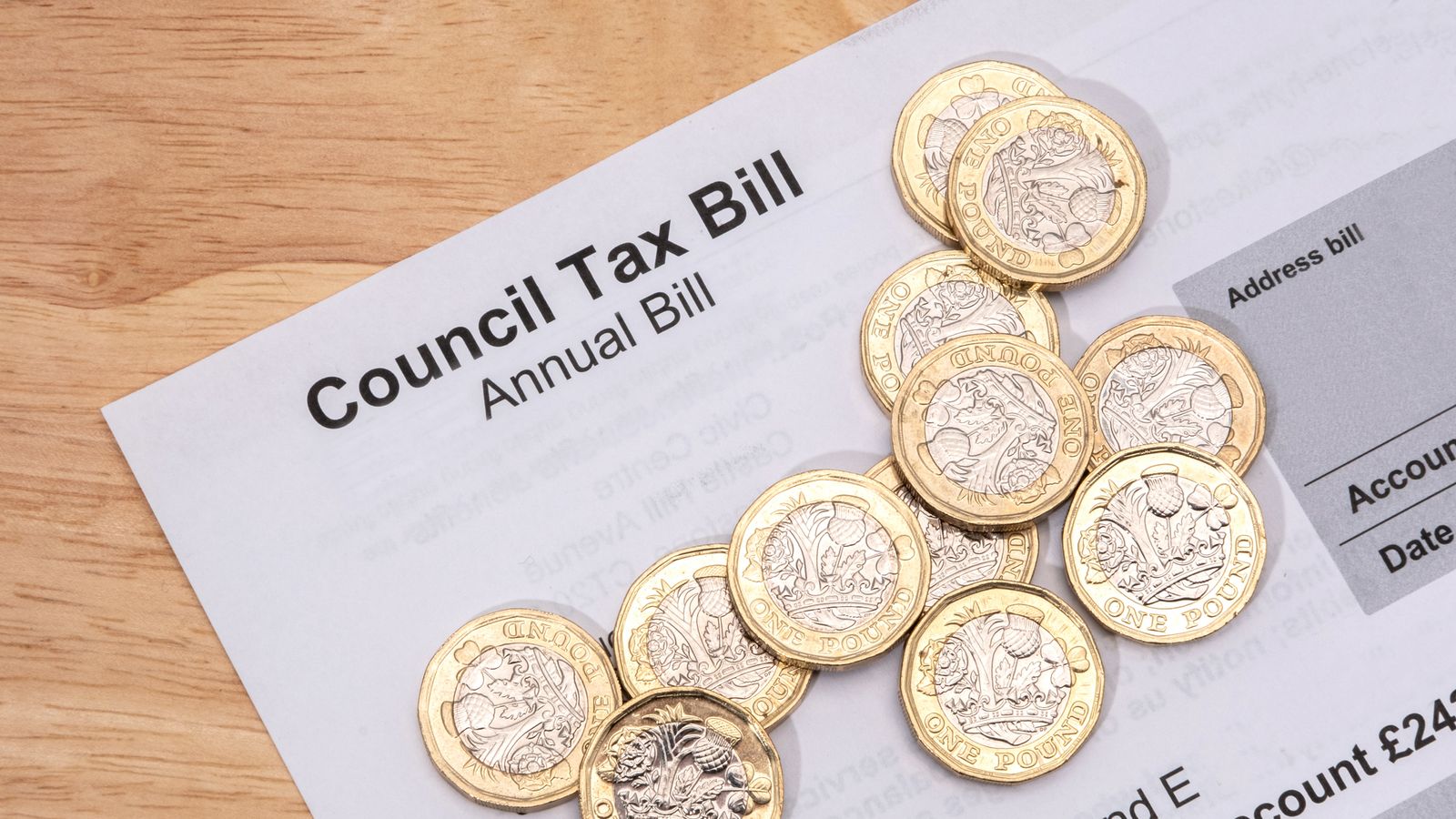Councils in England have warned they could be forced to reduce services and implement tax rises for the upcoming financial year as they criticised the level of funding provided by central government.
The Department for Levelling Up, Housing and Communities (DLUHC) has announced that funding available to councils will rise to more than £64bn next year, up from £59.7bn in 2023/24.
It said the councils will receive a minimum 3% uplift in core spending power – the amount councils have to spend from a combination of government grants, council tax and business rates.
Politics latest: ‘Govt takes scandal incredibly seriously’ – PM
But councils across the country have already warned that the settlement does not go far enough to help councils who are facing bankruptcy due to increasing cost and demand pressures.
They have called on the government to provide emergency funding to ring-fence crucial frontline services.
Councils struggling across the country
Since 2020, seven councils have issued at least one Section 114 notice, which means that all new spending – with the exception of protecting vulnerable people and statutory services – must stop immediately.
Last week Cheshire East Council warned it could be forced to declare bankruptcy after it spent £11m preparing for HS2 before the government’s “devastating” decision to cancel the northern leg in October.
It follows Nottingham Council issuing a Section 114 notice last month, with its chief financial officer warning it wasn’t able to deliver a balanced budget for this year, which is a legal requirement.
Birmingham City Council also issued its own 114 notice in September after being hit with a £760m bill to settle equal pay claims.
In its provisional local government finance settlement for 2024-25, the government said it was “making available £1bn in additional grant funding” for social care for the upcoming financial year, compared with 2023-24.
It said councils will be able to increase council tax by up to 3% without a local referendum, with a further 2% for those responsible for adult social care services and “additional flexibilities” for some authorities.
DLUHC also revealed it had made clear it does not support councils making use of “four-day week” arrangements after South Cambridgeshire District Council extended a trial of the four-day week until the end of March next year.
The government added it was exploring potential financial punishments for councils who continue to adopt the practice after 2024-25.
Please use Chrome browser for a more accessible video player
‘No choice’ on ‘higher council tax rises’
The County Councils Network (CCN), which represents England’s largest councils, said county authorities will be “bitterly disappointed” by the announcement.
Councillor Barry Lewis, finance spokesperson and vice chairman of the CCN, said: “The announcement of the provisional local government finance settlement today will be bitterly disappointing for England’s county authorities.
“With no additional funding announced, our councils will have no choice but to implement more severe reductions to services and to levy higher council tax rises.
“This will undoubtedly be a double whammy for residents during a cost of living crisis, while an increasing number of local authorities will struggle to deliver a balanced budget next year.”
Read more:
Why are councils going bankrupt?
Councils ‘running out of road’ to bridge £4bn gap
Be the first to get Breaking News
Install the Sky News app for free
‘Services communities rely on every day exposed to cuts’
Councillor Shaun Davies, chair of the Local Government Association, said councils in England were facing a funding gap of £4bn over the next two years.
“The funding uplift announced by the government today assumes that all councils will increase their council tax bills by the maximum allowed in 2024/25,” he said.
“This means councils are again left facing the difficult choice about raising bills to bring in desperately needed funding.
“Today’s settlement does not provide enough funding to meet the severe cost and demand pressures which have left councils of all political colours and types warning of the serious challenges they face to set balanced budgets next year.”
He added: “It is therefore unthinkable that the government has not provided desperately needed new funding for local services in 2024/25.
“Although councils are working hard to reduce costs where possible, this means the local services our communities rely on every day are now exposed to further cuts.”







